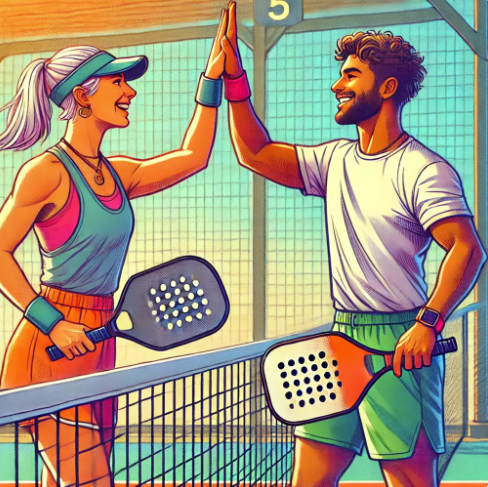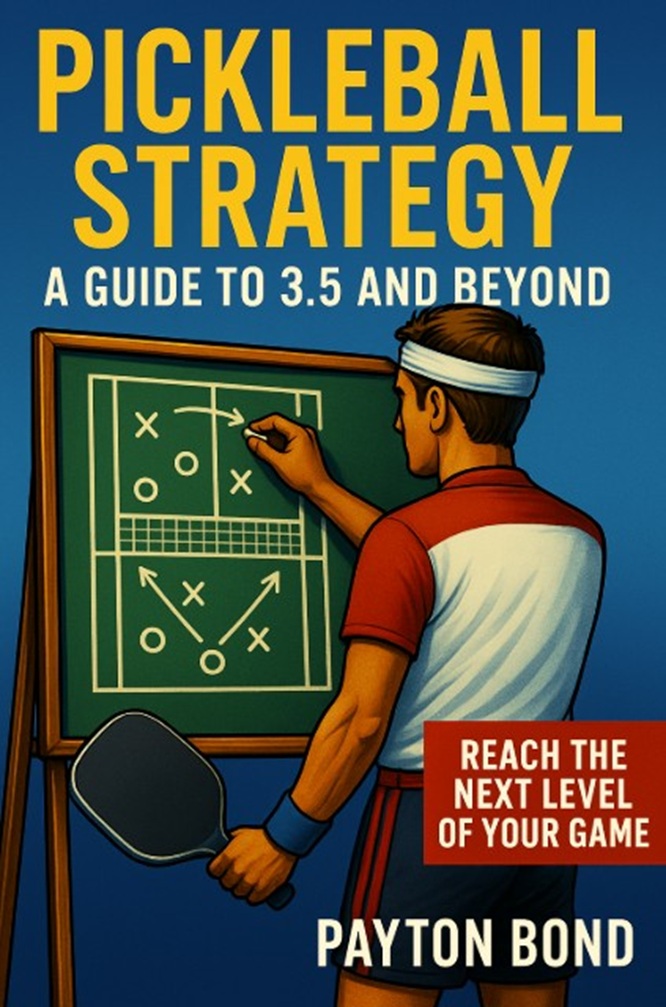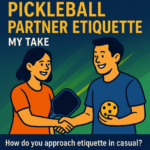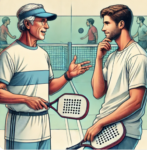
Introduction: Pickleball as a Social Experience
Pickleball is more than just a game—it’s a social activity that brings people together in a fun and engaging way. One of the best parts of pickleball is the opportunity to play at open play venues, where players of all skill levels gather, mix, and match up for games. These settings are all about community, spontaneity, and, most importantly, fun.
At open play, you’ll often find yourself partnered with—and playing against—a variety of people. This means every game is a chance to meet someone new, share some laughs, and enjoy the unique camaraderie that pickleball fosters. It’s a dynamic environment where good etiquette isn’t just a courtesy—it’s a key ingredient to making the experience enjoyable for everyone.
Having great court etiquette ensures that your interactions are positive, your games run smoothly, and people look forward to playing with you again. Whether you’re a seasoned player or just starting out, embracing the social side of pickleball and practicing good etiquette will enhance every aspect of the game.
Everyone has their own way of handling etiquette on the court. These are just the things I focus on—no judgment, just my approach. What do you do differently?
Before the Game: Set the Stage
Before I start, I take a moment to get to my partner. If I’m meeting them for the first time, I mix some friendly conversation with questions about their experience level. This helps me gauge how best to support them during the game.
Start things off on a positive note—I tap paddles and say something like, “Ok, here we go!” or anything encouraging to set a winning tone.
Mid-Game: Encourage and Communicate
When my partner makes a great shot, I acknowledge it right away. A simple “Nice shot!” or “Great get!” goes a long way in building a good relationship with them. For standout moments during a rally, follow up after the point with something specific like, “That was an amazing lob save.”
Even during the point, a quick “Nice!” or “Great get!” can boost their confidence without breaking focus.
Line Calls: Handle with Care
When my partner makes a close line call, I avoid overriding them. If I had a better view and think differently, I quietly share my perspective and let them decide whether to change the call. If opponents question it, I calmly explain, “We saw it out.” Keep it respectful—disputes aren’t worth the energy.
Pep Talks & On-Court Guidance
Whether it’s your serve or your partner’s, a little encouragement can help, especially if you’re behind. A quick “Ok, let’s do this!” can help refocus the team. If we win a point, I’ll say something like “Ok, let’s keep this going!”
Help your partner by communicating when they shouldn’t play a return. I say “No!” for balls likely to go long and “Watch it!” for borderline shots. Most partners appreciate the help.
Sharing the Court: Balance and Communication
Don’t take over the court unless your partner specifically asks for it. For shots down the middle, I communicate clearly with “I got it” or “You Go.” Prioritize shots on your forehand side but be mindful of your partner’s positioning. If I accidentally take a shot they expected, I explain briefly—“Sorry, it was on my forehand.” And if they correct you, acknowledge it with a quick “You’re right, my bad.”
Feedback: When (and How) to Give It
If my partner asks for advice during the game, I keep it simple and positive. If they apologize for a mistake, I reassure them with “Don’t worry, you’re doing fine.” I avoid offering unsolicited feedback and save any suggestions for after the game if they seem open to it.
Post-game, if my partner is new and I feel like I could offer some guidance, I start with, “Great playing with you!” If they mention anything negative about their performance or share that they’re just starting out, I take it as an opportunity to offer advice. Usually something like, “Can I share a couple of tips?” I focus on strategies like positioning or movement instead of critiquing their shot technique. For example: “I noticed that after returning the serve, you didn’t always move up to the net. Doing this consistently can really elevate your game,” rather than saying, “Your dink shot needs work.”
In Summary: Be the Partner Everyone Wants
In summary, I try to communicate well, offer encouragement, and keep things constructive. My goal is to leave a positive impression, so your partner is excited to team up again. For me, pickleball is not just about competition—it’s a social game where having fun is just as important as winning. What do you think, how do you act in these non-competitive games?
Check out Payton Bonds new eBook!
Pickleball Strategy – A Guide to 3.5 and Beyond
See it on Amazon.

👤 Follow Payton Bond
All Star and Top Contributor on multiple Facebook Pickleball Forums.
Contributor at TheKitchenPickle.com.
Visit Payton Bonds Facebook Page
Check out the related post on Pickleball Opponent Etiquette.





